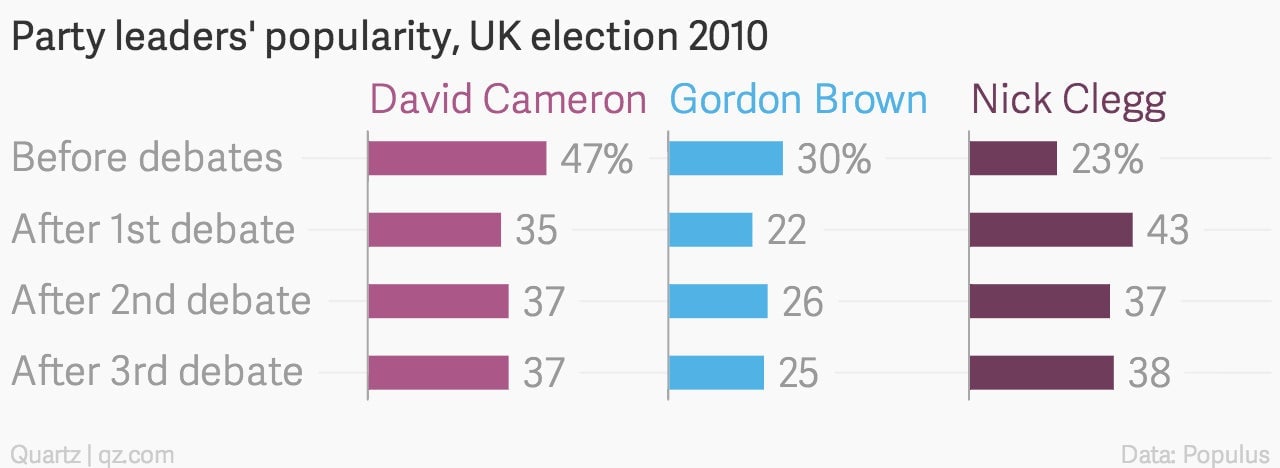David Cameron is doing all he can to avoid pre-election debates, for good reason
The UK is struggling to establish the practice of televised pre-election debates. Pressure is increasing on prime minister David Cameron to agree to a set of televised debates before voters go to the polls in May. Cameron is resisting. After all, he probably knows that when it comes to TV, incumbents rarely prosper.


The UK is struggling to establish the practice of televised pre-election debates. Pressure is increasing on prime minister David Cameron to agree to a set of televised debates before voters go to the polls in May. Cameron is resisting. After all, he probably knows that when it comes to TV, incumbents rarely prosper.
In the US, which has a long tradition of public presidential debates, incumbents often fare poorly, especially the first time they meet their challenger. Ronald Reagan told reporters during the 1984 campaign that it was harder for a serving president “because he’s under attack.” He added: “I look back now at the times in debates when I wasn’t the incumbent and never realized how easy it was to be on the other side.”
The UK has previously had only one set of televised debates, ahead of the last general election in 2010. Cameron’s Conservative party failed to win a majority in that election, and were able to form a government only by going into coalition with the Liberal Democrats.
A surge in the Lib Dems’ popularity before the vote had much to do with how its leader, Nick Clegg, performed in the debates:

This time around, Cameron has little to fear from Clegg. After four years in an uneasy coalition, the Lib Dem’s popularity is plumbing historic depths.
But the Conservatives aren’t exactly flying high, locked in a near dead heat with their traditional center-left rivals, the Labour party, according to a recent poll. Cameron’s Conservatives are also being outflanked on their right by the UK Independence Party (UKIP), which is gaining support for its anti-EU, anti-immigration platform.
“I think in 2010 David Cameron did very badly in these debates and was seen to be the loser,” UKIP leader Nigel Farage told the BBC today. Farage, Clegg, and Labour leader Ed Miliband wrote a joint letter to the prime minister this week, calling his reluctance to debate a “major setback to our democratic processes.”
Cameron has said he won’t debate because the Green Party is excluded from the current plans. A regulator ruled last week that the Greens were not a “major party,” and would therefore not be invited to debate. In a swipe at his UKIP and Lib Dem rivals, Cameron said in parliament today that “you can not have two minor parties without the third minor party.”
But since when was Cameron so worried about being fair to the left-leaning Greens? It is a clever diversion tactic, some say, with the prime minister willing to put up with the barbs from his main rivals instead of agreeing to debates where history suggests he has little to win but a lot to lose.